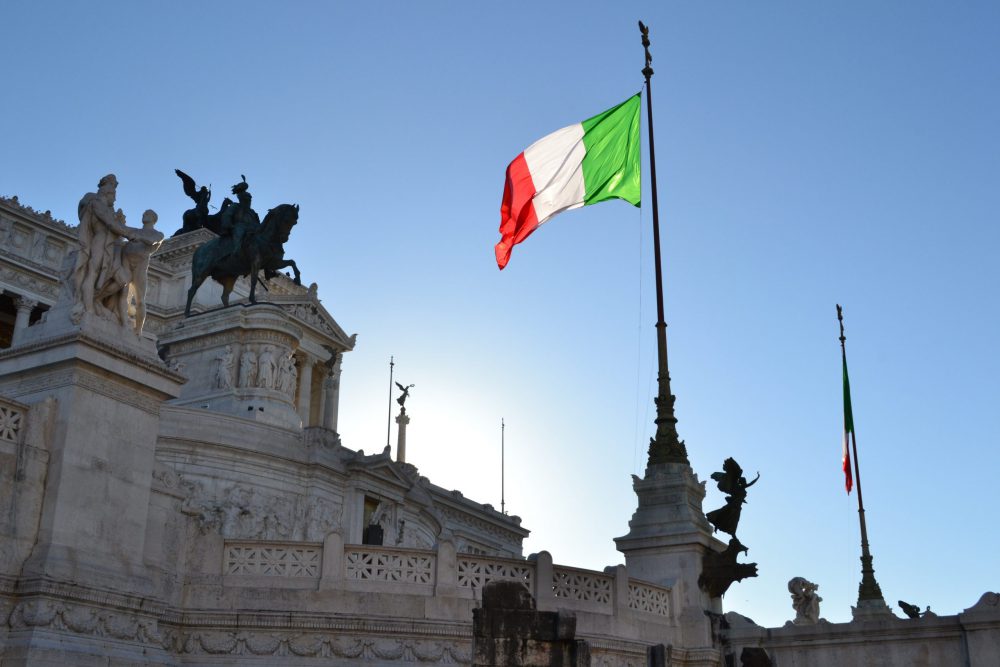Studying in Italy: A Comprehensive Guide
Italy is renowned for its delectable cuisine, warm culture, and the 55 UNESCO World Heritage sites that adorn its stunning landscape. But beyond these celebrated aspects, living and studying in Italy offers a unique and transformative experience. As the home to some of Europe’s most prestigious universities, Italy is an increasingly popular choice for international students seeking quality education combined with cultural enrichment.
In this comprehensive guide, we will explore all the key details you need to know about studying in Italy, from education quality and costs to application processes and scholarships. Whether you are drawn by Italy’s historic cities or its thriving student life, this guide will help you navigate the process of becoming a student in Italy.
The Quality of Italian Universities

Italian universities are known for their academic excellence and rich history. Many of them rank among the top institutions globally, offering high-quality education across a wide range of fields. According to the QS World University Rankings, some of the leading universities in Italy include:
- Politecnico di Milano – Ranked 142nd in the world
- University of Bologna – Ranked 166th in the world
- Sapienza University of Rome – Ranked 171st in the world
Italy also performs well in terms of human development and quality of life. According to the United Nations Human Development Index (HDI), Italy ranks 29th among 189 countries. This ranking reflects the country’s strong education system and high standard of living. Studying in Italy means not just gaining an education, but also immersing yourself in a high-quality lifestyle that promotes both learning and personal well-being.
Italian universities boast a long-standing tradition of academic excellence, particularly in fields such as engineering, art, architecture, and medicine. With a university system that is among the oldest in Europe, Italy provides a deep and enriching academic culture.
Types of Universities in Italy: Public vs. Private
Italy’s higher education institutions fall into two main categories: public and private universities. Public universities offer an affordable education, which makes them attractive for international students on a budget. Private universities, on the other hand, provide smaller class sizes, more individualized attention, and access to extensive international networks, although they can be more costly.
Public Universities
Public universities in Italy are well-regarded for providing quality education at an affordable cost. Some notable public universities and their annual tuition fees are:
| Public University | Annual Tuition Fee (EUR) |
|---|---|
| Università di Siena | 1,444 € |
| Università Degli Studi di Milano | 1,052 – 1,500 € |
| Università di Pisa | 356 – 2,556 € |
Public universities are located across Italy, including in cities like Bologna, Rome, Milan, and Turin, which are home to some of the most prestigious institutions in Europe. Additionally, these universities offer numerous scholarships, making higher education accessible to many.
Private Universities
Private universities, while more expensive, offer specialized academic programs, smaller classes, and often greater academic support. These institutions emphasize a personal learning experience and may provide enhanced facilities. Annual tuition at private universities can be significantly higher than at public institutions, but many also provide financial aid and scholarships to help offset the cost.
Universities Offering Programs in English
Italy has become an attractive option for international students, in part because of the increasing number of programs offered in English. These programs are popular in fields such as business, engineering, medicine, and international relations. Notable universities with English-taught programs include:
| University | Number of English Programs | Sample Programs |
| University of Bologna | 80 | Medicine, Law, Economics, Engineering, Architecture |
| University of Florence | 120 | Agriculture, Architecture, Economics, Political Science |
| Humanitas University | All Programs | Medicine, Nursing, Physiotherapy |
Offering English-language programs allows Italy to attract international students who might otherwise face language barriers. As a result, these universities create a vibrant, multicultural environment where students can thrive academically and socially.
Admission Requirements for Italian Universities
To gain admission to an Italian university, prospective students need to meet a variety of requirements, which vary depending on the university and the program they are applying for. Generally, students must provide:
- High School or Bachelor’s Diploma: An internationally recognized certificate equivalent to the Italian standard.
- Language Proficiency Certificate: For programs taught in English, students may need to provide proof of English proficiency through exams like IELTS, TOEFL, or the CEFR (Common European Framework of Reference for Languages).
- Resume and Application Form: A detailed resume along with a completed application form.
- Recommendation Letter: A reference from a school or employer that supports the student’s application.
- Motivation Letter: An essay explaining the student’s reasons for applying and future goals.
Non-EU students are also required to apply for a student visa and obtain a residence permit after arriving in Italy. Some universities also conduct interviews as part of their admission process.
For students who are not yet proficient in the language of instruction, many universities offer language courses and preparatory programs to help them adapt to their academic environment.
Cost of Living in Italy
Living in Italy as a student can vary in cost depending on the city and lifestyle. Larger cities like Milan and Rome tend to have higher costs, while smaller cities like Siena or Bologna offer more affordable living options. Here is a breakdown of some typical living expenses:
Food and Other Essentials
| Expense | Cost (EUR) |
| Meal at an inexpensive restaurant | 15,00 € |
| Cappuccino | 1,39 € |
| Water (1.5L) | 0,42 € |
| Bread (loaf) | 1,56 € |
| Eggs (12-pack) | 2,79 € |
| Apples (1kg) | 1,81 € |
| Red meat (1kg) | 14,67 € |
Rent and Accommodation
Accommodation costs depend on location and housing type. Below is an estimate of rental prices:
| Type of Accommodation | Monthly Cost (EUR) |
| Politecnico di Milano dormitory | 400€ – 700€ |
| Università di Milano dorm (Erasmus) | 300€ |
| 1-bedroom apartment in Milan (city center) | 1,088€ |
| 1-bedroom apartment outside Milan | 753€ |
University dormitories are often the most affordable option, and they provide an engaging social environment. However, many students choose private apartments for more privacy, which comes at a higher cost.
Benefits of Being a Student in Italy
Studying in Italy offers numerous advantages beyond academics. The country provides a rich cultural context that fosters personal and intellectual growth. Key benefits include:
- Historical and Cultural Immersion: Living in cities like Rome, Florence, or Venice means studying amidst centuries of history, with opportunities to explore iconic landmarks during your time off.
- Diverse Language Learning Opportunities: Students have the chance to study in both Italian and English, enriching their cultural and linguistic skills.
- Scholarship Opportunities: Italy provides numerous scholarships for students based on merit and need, making higher education accessible to many.
- Student Clubs and Social Activities: Universities offer a variety of social clubs and activities, which help students develop their interests, build social networks, and integrate into Italian culture.
Studying in Italy also means being part of a culturally rich environment that encourages exploration and learning beyond the classroom. It’s a journey into art, history, and modern European culture.
Conclusion
Pursuing higher education in Italy is an enriching experience that offers much more than just an academic qualification. From diverse academic programs and prestigious institutions to a culturally vibrant environment, Italy is an ideal destination for students looking for quality education coupled with personal growth.
With numerous scholarships, English-taught programs, and a rich academic tradition, Italy offers an unmatched combination of high-quality education and an unforgettable cultural experience. If you are ready to embark on this journey, now is the time to start your application process. Visit the official websites of the universities you are interested in for detailed information.
Don’t miss the opportunity to experience one of the most historically rich countries while earning your degree. Take the first step towards a memorable educational adventure in Italy today!

